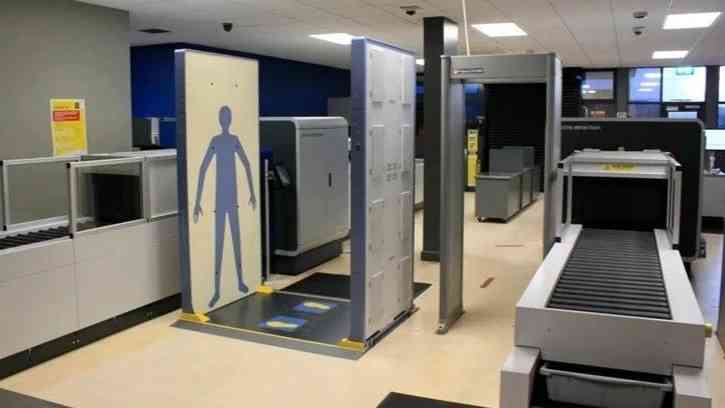
The landscape of modern industries is undergoing a significant transformation, largely fueled by technological advancements that streamline operations and enhance productivity. One of the key innovations contributing to this revolution is the advanced scanner machine. These devices, equipped with sophisticated features and capabilities, have begun to redefine how businesses manage data, track inventory, and ensure quality control.Enhanced Data ManagementIn today’s data-driven environment, effective data management is crucial for any industry. Advanced scanner machines have emerged as pivotal tools in this realm. They facilitate the rapid capture of information, converting physical documents and objects into digital formats that can be easily stored, retrieved, and analyzed. This transition from paper to digital not only reduces the risk of data loss but also enhances accessibility, allowing employees to retrieve vital information quickly. For industries such as healthcare, where patient data management is critical, the implications are profound. Advanced scanners enable hospitals and clinics to digitize patient records, streamlining administrative processes and improving patient care. The ability to quickly access and share medical histories fosters collaboration among healthcare providers, leading to better clinical outcomes.Optimizing Inventory ManagementThe retail and manufacturing sectors are also witnessing transformative changes thanks to advanced scanner machines. These devices are instrumental in optimizing inventory management processes. Traditionally, managing stock levels and tracking inventory movements were tedious tasks that required significant labor and time investment. With the introduction of advanced scanning technology, businesses can now automate these processes, resulting in greater efficiency and accuracy.For instance, barcode scanners and RFID (Radio Frequency Identification) technologies allow for real-time tracking of inventory. As items move in and out of storage, these scanners provide instant updates to inventory management systems. This not only helps in maintaining optimal stock levels but also minimizes the risk of overstocking or stockouts, thus enhancing overall operational efficiency.Improving Quality ControlQuality control is a cornerstone of manufacturing and production industries. Ensuring that products meet specific standards before they reach consumers is paramount to maintaining a brand’s reputation and customer satisfaction. Advanced scanner machines play a critical role in this aspect as well. These devices can quickly analyze products for defects, measure dimensions, and verify compliance with quality standards. For example, in the automotive industry, scanner machines are used to inspect components with precision, identifying flaws that may not be visible to the naked eye. This capability not only reduces waste but also prevents costly recalls and enhances the overall quality of the final product.Streamlining Logistics and Supply ChainsThe logistics and supply chain sectors are also benefiting from the capabilities of advanced scanner machines. Efficient tracking and management of shipments are essential for meeting customer expectations and maintaining a competitive advantage. Advanced scanners facilitate the scanning of shipping labels, tracking numbers, and delivery documentation, enabling companies to monitor the movement of goods throughout the supply chain in real-time.This enhanced visibility allows businesses to make informed decisions regarding shipping routes, inventory levels, and supplier performance. In a landscape where consumer demands are constantly evolving, the ability to adapt and respond swiftly is a game-changer. Companies that leverage advanced scanning technology can optimize their logistics operations, reduce shipping errors, and ultimately improve customer satisfaction.Facilitating Remote Work and CollaborationThe rise of remote work has necessitated new approaches to collaboration and communication within organizations. Advanced scanner machines have emerged as essential tools in facilitating remote access to information and documents. By digitizing physical paperwork, employees can share and collaborate on important documents from anywhere in the world.This capability is particularly beneficial for industries that require constant communication between teams, such as design and engineering. By using scanner machines to create digital copies of drawings, blueprints, and contracts, teams can work together seamlessly, regardless of their physical locations. The ability to quickly share and annotate documents enhances collaboration and accelerates project timelines.Environmental SustainabilityAs industries strive to adopt more sustainable practices, advanced scanner machines contribute to environmental conservation efforts. By reducing reliance on paper documents, these machines help decrease waste and minimize the carbon footprint associated with printing and storage. Many businesses are now implementing eco-friendly initiatives, and the adoption of scanning technology is a significant step toward achieving these goals.Moreover, the data captured by scanner machines can be analyzed to identify areas for further improvement in sustainability. For instance, businesses can track resource consumption patterns and identify opportunities to reduce waste throughout their operations. This not only supports corporate social responsibility initiatives but also fosters a culture of sustainability within organizations.Cost Efficiency and ROIWhile the initial investment in advanced scanner machines may seem considerable, the long-term benefits far outweigh the costs. Companies that integrate these devices into their operations often experience substantial savings through increased efficiency, reduced labor costs, and minimized errors. The automation of repetitive tasks allows employees to focus on higher-value activities, further driving productivity.Additionally, the data analytics capabilities of advanced scanners provide organizations with valuable insights that can inform strategic decision-making. This level of intelligence can lead to more efficient processes, better resource allocation, and ultimately, higher returns on investment.In conclusion, advanced scanner machines are revolutionizing efficiency across various industries. Their ability to enhance data management, optimize inventory, improve quality control, streamline logistics, facilitate remote work, promote sustainability, and ultimately drive cost efficiency positions them as essential tools in the modern industrial landscape. As businesses continue to embrace technological innovation, the impact of these machines will likely grow, shaping the future of work and productivity.










